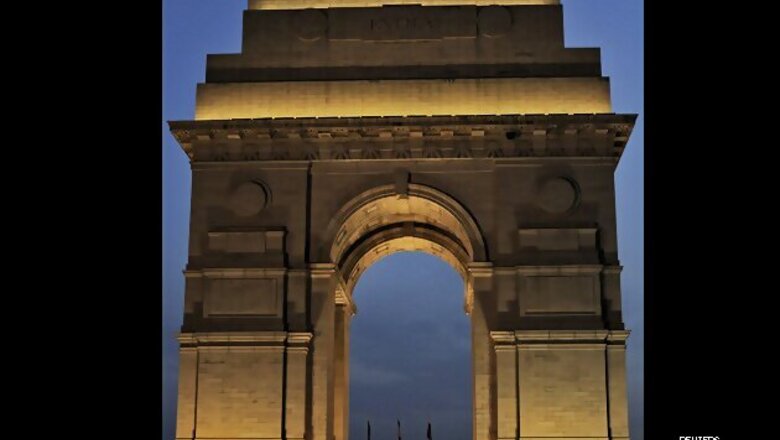
views
New Delhi: The capital of India is a bustling hub of 17 million people and one of the centers of modern Indian life. It is chaotic and crowded, yet filled with beautiful gardens and history dating back thousands of years. There are massive monuments from the Mughal kings of the 16th and 17th centuries as well as to the British Raj of the early 20th Century. Many monuments and museums charge for entry, but there are still a few fascinating experiences visitors can have for free.
Old Delhi
Old Delhi is the vibrant heart of the city, its sidewalks crowded with markets and vendors selling street food or chaat, its roads a hazard of bicycle rickshaws, three-wheelers and veering motor scooters, its skies a tangle of haphazard electrical wiring. The four-century-old neighborhood — once known as Shahjahanabad, after Mughal emperor Shah Jahan — is home to a fascinating array of Islamic mosques, Sikh gurdwaras, Hindu and Jain temples and the odd haveli, or historic mansion. The Khari Baoli spice market is famous for the never-ending sacks of saffron, lentils and curry powder for sale. At the Kinari Bazaar wedding market, families shop for crimson bridal saris and elegant sherwani coats and turbans for the groom. Other markets display bangles, silver jewelry, fireworks and bronze statues. If you are bored, bring a kite and climb up onto a roof to take part in a traditional Delhi past time.
India Gate
The towering India Gate, New Delhi's answer to the Arc de Triomphe, stands in a massive park at the heart of the city. The sandstone and granite memorial commemorates the soldiers in the British Indian Army killed in World War I and in fighting in Afghanistan. The gate is a centerpiece of the grassy squares, wide walkways, mammoth government buildings and official bungalows designed by British architect Edwin Lutyens to house the British colonial capital in the 1920s and '30s. The park houses one of the largest and best maintained children's playgrounds in the city. On a clear day, you can look straight down Rajpath street to Rashtrapathi Bhavan, the president's house.
Lotus Temple
India is filled with religious sites, but one of the most iconic is the Baha'i Lotus Temple. The starkly white temple is in the shape of a partially blooming lotus flower, its petals layered one upon the other. Outside, sit nine pools. Visitors get a brief explanation of the Baha'i faith and then are allowed in the inner sanctuary for quiet contemplation.
Qawwali
One of the lesser known sites in Delhi is the Nizamuddin Dargah, a complex of tombs, mosques and stalls centered on the burial site of revered Sufi saint Nizamuddin Auliya. On Thursday evenings, Nizamuddin's tomb transforms into a venue for a concert of devotional qawwali music. The audience sits on a wide marble courtyard in front of the tomb while singers perform hauntingly beautiful songs backed by musicians playing the accordion-like harmonium and the tabla drums. On hot summer nights, men wildly swing gigantic fans across the crowd to try to cool guests down.
Lodhi Garden
Lodhi Garden in a posh neighborhood of south Delhi is a destination beloved by locals that offers a lot to tourists as well. You can watch the wealthy Delhi society wives speedwalking on the jogging track, join in a cricket match with children on the lawns or feed the ducks in the pond. Then there are the monuments, which, unlike others in the city, are free of charge. There is a tomb to 16th century ruler Sikander Lodhi, the Bara Gumbad complex and several other structures with surviving traces of intricate designs. A recent tourism push has spread informative signs throughout the garden. If you want to relax, you can always find a chaiwallah walking by to sell you a cup of hot tea from his pot. But that will cost you.
















Comments
0 comment